Javascript is disabled
Javascript seems to be disabled. This will break some core site features. Please enable javascript or revisit this site from another device.
Keynote Speakers
Lori Sussel
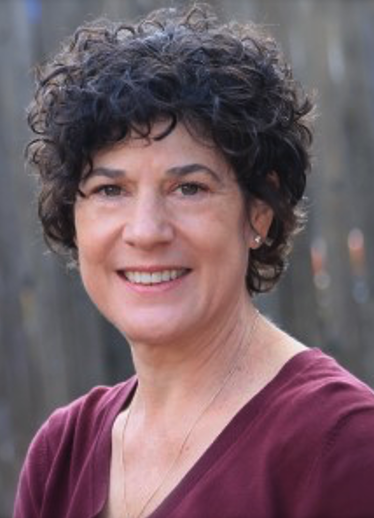
Keynote Lecture 12 June 2024
Dr. Sussel is Professor and Director of Research at the Barbara Davis Center for Diabetes, School of Medicine, University of Colorado. Her research focuses on understanding the transcriptional networks that regulate the development, differentiation, and function of the pancreas. Dr. Sussel’s lab made the groundbreaking discovery of a ghrelin-producing epsilon cell population in the foetal islet, uncovering a lineage relationship between beta and epsilon cells. Her team has identified key regulatory pathways critical for islet lineage specification and beta cell maturation. Currently, her research explores transcription factors, long non-coding RNAs, and RNA processing events that regulate alpha and beta cell identity, with the goal of improving treatments for Type 1 diabetes.
Klaus H. Kaestner
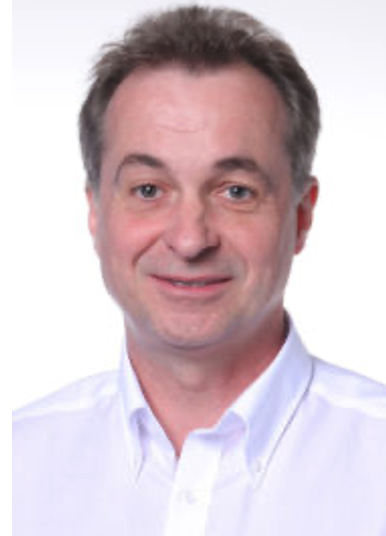
Keynote Lecture 13 June 2024
Dr. Kaestner is the Thomas and Evelyn Suor Butterworth Professor in Genetics and Associate Director of the Diabetes Research Center at the University of Pennsylvania. His lab utilizes advanced genetic, genomic, and epigenomic techniques and advanced mouse models to investigate the events that lead to islet failure in diabetes. He is co-leader of the NIH-funded Human Pancreas Analysis Program (HPAP) which performs a multitude of physiological, immunological, histological, transcriptomic and (epi)genomic assays on pancreata and the immune system from deceased organ donors with diabetes. Currently, his work is focused on understanding the earliest pathogenic events in T1D.
Invited Speakers
Ulf Ahlgren

Listen to Dr. Ahlgren on Session 3: The islet cell in Type-2 Diabetes
Dr. Ahlgren is Professor of Molecular Medicine at the Department of Medical and Translational Biology and a leader in the field of pancreatic biology. His lab has advanced mesoscopic imaging techniques, particularly OPT and LSFM imaging, to study the pancreas in unprecedented detail using rodent disease models. This work has provided critical insights into normal pancreatic anatomy and pathologies such as islet destruction, neogenesis, and cell reprogramming. Using optical 3D imaging techniques, Dr. Ahlgren's research now focuses on exploring heterogeneities in human islet cellularity and its significance for islet function in health and disease.
Sebastian Barg

Listen to Dr. Barg on Session 7: Beta & non-beta cells
Dr. Barg is a Professor in the Department of Medical Cell Biology at Uppsala University, where he leads a research group focused on the cell biology of insulin secretion. Utilizing advanced techniques such as total internal reflection fluorescence (TIRF) microscopy, single-molecule imaging, and patch-clamp electrophysiology, Dr. Barg's work focuses on understanding the mechanisms behind the regulated exocytosis of secretory granules. His research provides crucial insights into insulin secretion dynamics, with significant implications for diabetes treatment.
Diego Balboa

Listen to Dr. Balboa on Session 5: Modelling human islet development
Dr. Balboa is Group Leader and Director of the Biomedicum Stem Cell Center at the University of Helsinki. His research focuses on the mechanisms governing human pancreas development and function, with a particular emphasis on how their disruption can lead to diabetes. Dr. Balboa's group utilizes genome-engineered stem cells to generate pancreatic islets for both in vitro and in vivo diabetes models. By integrating single-cell omics and genetic perturbation approaches, they aim to unravel the regulatory networks involved in pancreatic islet development and disease.
Amélie Bonnefond
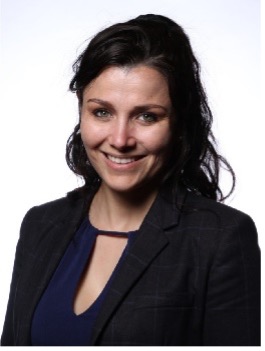
Listen to Dr. Bonnefond on Session 1: Genomics of islet cells
Dr. Bonnefond is Director of Research at INSERM/CNRS and leader of the team on metabolic functional (epi)genomics. She’s a distinguished researcher focused on uncovering the genetic causes of type 2 diabetes and obesity, aiming to improve patient stratification and identify new drug targets. Dr. Bonnefond's work integrates next-generation sequencing for precision medicine. She also serves as the scientific director of the LIGAN-PM platform and is a visiting professor at Imperial College London.
Caroline Bonner

Listen to Dr. Bonner on the Debate
Dr. Bonner is Group Leader in Diabetes Translational Research at the Institute Pasteur de Lille. She leads a pioneering research team focused on the mechanisms by which antihyperglycemic drugs regulate glucose homeostasis and normalize pancreatic hormone secretion in diabetes. Her unit specializes in translational diabetes research, particularly in human islet transplantation and metabolic surgery. The group's mission is to develop innovative therapies for severe diabetes, including islet transplantation for type 1 diabetes and metabolic surgery for type 2 diabetes. By integrating clinical researchers, surgeons, and biologists, Dr. Bonner's team successfully translates laboratory findings into clinical applications, advancing treatment strategies and utilizing human biological samples for experimental studies.
Charna Dibner
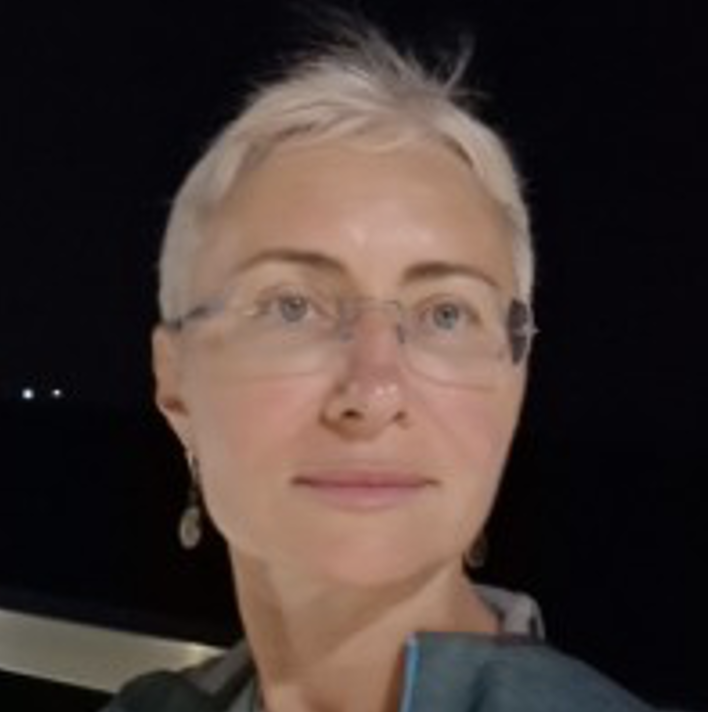
Listen to Dr. Dibner on Session 7: Beta & non-beta cells
Dr. Dibner is Professor of Circadian Endocrinology and Chronomedicine at the University of Geneva. She leads an internationally recognized team in Geneva dedicated to advancing our understanding of molecular circadian oscillators and their impact on physiology and disease. Her research explores the crucial role of circadian clocks in regulating metabolic processes, with a focus on the interplay between these biological rhythms and metabolic disorders like obesity and type 2 diabetes. Through innovative techniques, Dr. Dibner's lab investigates circadian mechanisms in human tissues, including pancreatic islet cells, skeletal muscle, and white adipose tissue, while also examining the link between circadian rhythms and cancer, particularly lung, parathyroid and thyroid malignancies, to inform new diagnostic approaches.
Lena Eliasson
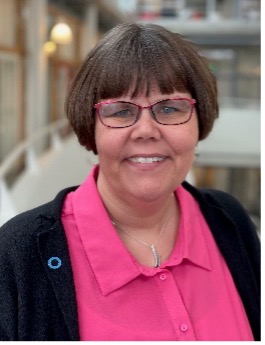
Listen to Dr. Eliasson on Session 3: The islet cell in Type-2 Diabetes
Dr. Eliasson’s is Professor of Experimental Diabetes Research at Lund University Diabetes Centre. Her research is focused on understanding the function of pancreatic alpha- and beta-cells to improve diabetes treatment. Her work explores the mechanisms behind impaired insulin secretion from beta cells and disturbed glucagon regulation in alpha cells, which are central to diabetes pathology. A specialist in exocytosis and cell priming, Dr. Eliasson has significantly contributed to the field by investigating the role of microRNAs and chloride channels in insulin and glucagon secretion. As Vice-Coordinator of Lund University Diabetes Centre, her research aims to uncover novel therapeutic targets and biomarkers for type 2 diabetes and its complications.
Carmella Evans-Molina

Listen to Dr. Evans-Molina on Session 4: The islet cell in Type-1 Diabetes
Dr. Carmella Evans-Molina is the Eli Lilly Foundation Professor of Pediatric Diabetes at Indiana University School of Medicine and Director of the NIH-funded Indiana Diabetes Research Center (IDRC). With an M.D. from Marshall University and a Ph.D. in Pharmacology from the University of Virginia, her work focuses on diabetes research, particularly pancreatic islet function and Type 1 diabetes. She is a leading investigator in the Type 1 Diabetes TrialNet Network and Co-Executive Director of the Network for Pancreatic Organ Donors with Diabetes (nPOD).
Jakob Grunnet Knudsen
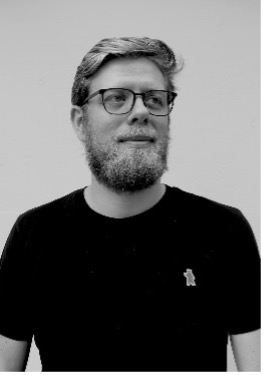
Listen to Dr. Grunnet Knudsen on Session 2: Metabolism in islet cells
Dr. Grunnet Knudsen is Assistant Professor of Cell Biology and Physiology at the University of Copenhagen. His research focuses on understanding the role of glucagon in diabetes, recognizing it as a bi-hormonal disease involving both insulin and glucagon dysregulation. Glucagon, secreted by pancreatic alpha cells, plays a crucial role in maintaining blood glucose levels during fasting by increasing hepatic glucose production. Despite decades of study, the mechanisms regulating glucagon secretion remain poorly understood. Dr. Knudsen's work aims to uncover how alpha cells function, how they interact with their environment, and how alterations in glucagon secretion contribute to the disruption of glucose metabolism in diabetes.
Torben Hansen
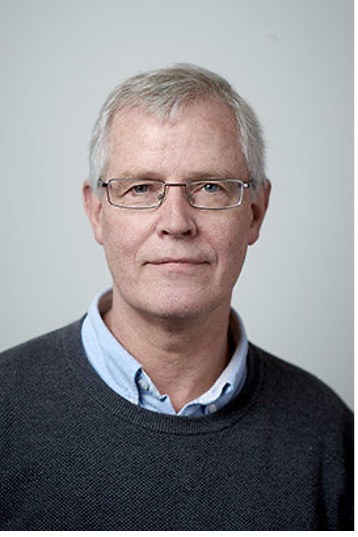
Listen to Dr. Hansen on Session 1: Genomics of islet cells
Dr. Torben Hansen is Professor of Metabolic Genetics at the University of Copenhagen, where his research focuses on the interplay between the human genome and microbiome in the context of health and metabolic diseases. His group aims to bridge the gap between genetic and microbiome discoveries and their physiological and clinical implications. By integrating genomic findings with epidemiology, physiology, and clinical studies, the Hansen Group seeks to develop translational strategies for the prevention and treatment of metabolic disorders. Their work includes recruit-by-genotype studies, investigations of extreme metabolic phenotypes, and targeted clinical management of individuals with high-impact genetic variations.
Pedro Herrera

Listen to Dr. Herrera on the Debate
Dr. Herrera is Professor at the Department of Genetic Medicine and Development, University of Geneva Medical School, specializing in pancreatic development and regeneration. His pioneering work in cell lineage tracing and genetic regulation of pancreatic cell fate has led to groundbreaking discoveries in beta-cell regeneration, crucial for diabetes research. Dr. Herrera's research demonstrated that non-beta pancreatic cells, such as alpha- and delta-cells, can reprogram to produce insulin, revealing significant potential for novel diabetes therapies. His contributions have redefined the understanding of cell plasticity in adult organs and opened new avenues for regenerative medicine. Dr. Herrera also directs the university’s Transgenic Core Facility.
David Hodson

Listen to Dr. Hodson on Session 2: Metabolism in islet cells
Dr. Hodson is the Robert Turner Professor of Diabetic Medicine at the Oxford Centre for Diabetes, Endocrinology and Metabolism, University of Oxford. His research focuses on developing innovative technologies to tackle challenges in cellular metabolism, with a strong translational impact for diabetes and obesity treatment. Dr. Hodson's lab explores the role of GLP1 and GIP receptors in glucose regulation, food intake, and inflammation, utilizing human tissue and animal models. His interdisciplinary team combines chemistry, biology, and genetics to advance understanding of islet biology, hormone release, and the pathophysiology of type 1 and type 2 diabetes.
Mark Huising

Listen to Dr. Huising on Session 6: Signalling and crosstalk in the islet and Chairing the Debate
Dr. Huising is Professor at the Department of Neurobiology, Physiology and Behavior, University of California Davis. His research focuses on the intricate communication networks between alpha, beta, and delta cells within the pancreatic islets, which regulate insulin, glucagon, and somatostatin release to maintain glucose homeostasis. Dr. Huising's lab studies how these cells interact with the nervous system and peripheral tissues, with a particular emphasis on the role of corticotropin-releasing factor (CRF) and Urocortin3 (Ucn3) in beta-cell function and stress response. His work uncovers potential therapeutic targets for treating diabetes.
Mariana Igoillo-Esteve
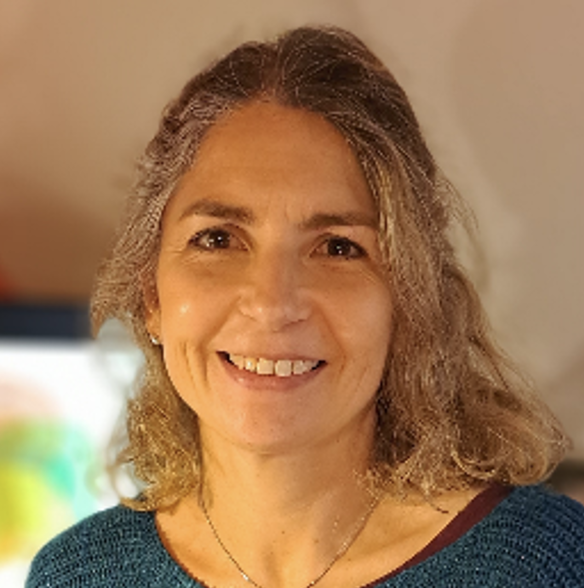
Listen to Dr. Igoillo-Esteve on Session 3: The islet cell in Type-2 Diabetes
Dr. Igoillo-Esteve is Associate Professor at the Center for Diabetes Research, Université Libre de Bruxelles. Her research delves into the molecular mechanisms underlying β-cell dysfunction and death in both type 2 diabetes and monogenic diabetes forms. Dr. Igoillo-Esteve's work has uncovered that tRNA hypomethylation and fragmentation are novel contributors to β-cell demise. She is currently investigating the biogenesis and functional impact of tRNA fragments, exploring their role in β-cell survival and function. Her studies aim to elucidate how environmental factors may affect tRNA modifications, with implications for both monogenic and polygenic diabetes.
Cécile Jacovetti

Listen to Dr. Jacovetti on Session 6: Signalling and crosstalk in the islet
Dr. Jacovetti is Senior Postdoctoral Fellow in Prof. Romano Regazzi’s group at the Department of Basic Neuroscience, Université de Lausanne. Her research focuses on elucidating the molecular mechanisms regulating pancreatic beta-cell functions under both normal and pathophysiological conditions. Recently, Dr. Jacovetti's work has highlighted the role of various non-coding RNAs in modulating beta-cell functions and their involvement in the development of Type 1 and Type 2 diabetes. Her studies aim to deepen the understanding of these regulatory elements to better address diabetes-related challenges.
Rohit Kulkarni
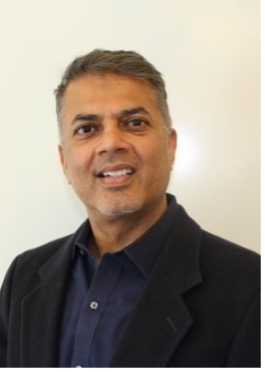
Listen to Dr. Kulkarni on Session 1: Genomics of islet cells
Dr. Kulkarni is Professor of Medicine at Harvard Medical School and holds the Diabetes Research and Wellness Foundation Chair at Joslin Diabetes Center, where he co-heads the Section on Islet & Regenerative Biology. Dr. Kulkarni’s lab has led the field in investigating the significance of growth factor signaling and especially the roles of insulin/IGF-1 receptors and their substrates in mammalian islet biology. More recently his lab has focused on exploring how mRNA modifications can modulate beta and alpha cells in the overall regulation of glucose homeostasis. His team employs uses genetically engineered models, transplantation, parabiotic models, complemented by in vivo studies in mice and humans and induced pluripotent stem (iPS) cell differentiation. These studies aim to enhance our understanding of islet cell function and develop potential therapeutic strategies.
Limor Landsman
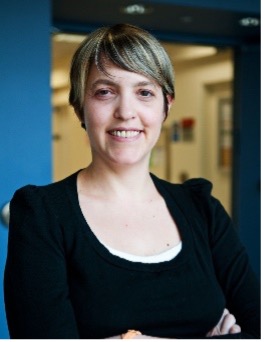
Listen to Dr. Landsman on Session 5: Modelling human islet development
Dr. Landsman is Associate Professor at the Department of Cell and Developmental Biology, Faculty of Medical and Health Sciences, Tel Aviv University. Her research investigates the pancreatic microenvironment's influence on glucose regulation and diabetes. Dr. Landsman's lab focuses on understanding how insulin secretion from pancreatic beta-cells is regulated and maintained, and why it fails in diabetes. The team explores the interaction between beta-cells and their microenvironment, emphasizing the role of pericytes in insulin secretion and glucose regulation. They use genetically engineered mice to study cellular communication within the pancreas and its disruption in diabetes, aiming to advance cell-replacement therapies.
Roberto Mallone

Listen to Dr. Mallone on Session 4: The islet cell in Type-1 Diabetes
Dr. Mallone is Professor of Immunology at Université Paris Cité and an Adult Diabetologist at Cochin Hospital. He leads a research team at the INSERM Cochin Institute and directs a satellite lab at the Indiana Biosciences Research Institute in Indianapolis. His research spans preclinical studies with human samples and mouse models, as well as clinical trials, focusing on autoimmune T cells and type 1 diabetes mechanisms. Dr. Mallone has made significant contributions by elucidating the role of CD8+ T cells in beta-cell autoimmunity, developing T-cell assays for disease understanding and therapy, and exploring perinatal vaccination strategies. His recent work includes identifying novel granule antigens targeted by autoimmune T cells.
Hindrik Mulder

Listen to Dr. Mulder on Session 2: Metabolism in islet cells
Dr. Mulder is Professor of Metabolism at Lund University, Sweden, and conducts a weekly outpatient clinic for diabetes patients at Skåne University Hospital. His research focuses on insulin-secreting beta-cells in the islets of Langerhans, which are crucial for regulating whole-body metabolism and are impaired in Type 2 Diabetes. Dr. Mulder's work spans from early studies on islet amyloid polypeptide (IAPP) to lipid metabolism in beta-cells and neurodegenerative disorders. His lab established a metabolomics platform and is currently advancing research on mitochondrial genetics and diurnal metabolic regulation. Recently, Dr. Mulder has developed a platform for induced pluripotent stem cells (iPSCs) to study genetic risk factors for Type 2 Diabetes, utilizing CRISPR-Cas for genome editing.
Sarah Richardson

Listen to Dr. Richardson on the Debate
Dr. Richardson is a Professor of Cellular Biomedicine at the University of Exeter with a passionate interest in type 1 diabetes and Team Science. She leads Islet Biology Exeter (IBEx), a team of principal investigators with complimentary expertise in type 1 diabetes research. Her research utilises unique pancreas biobanks and is centred around understanding the disease processes by which beta cells are targeted and destroyed. She has particular interests in how early pancreas growth may influence the development of different forms of type 1 diabetes, and the role that enteroviruses and anti-viral responses play in the disease. She curates the Exeter Archival Diabetes Biobank, which contains the most extensive and rarest collection of recent-onset type 1 diabetes pancreata globally.
Teresa Rodriguez-Calvo

Listen to Dr. Rodriguez-Calvo on Session 4: The islet cell in Type-1 Diabetes
Dr. Rodriguez-Calvo is Lead Scientist of Type 1 Diabetes Pathology at the Institute of Diabetes Research, Helmholtz Munich, German Research Center for Environmental Health. Her research focuses on uncovering immunopathological mechanisms in Type 1 diabetes to develop strategies for disease prevention and reversal. Dr. Rodriguez-Calvo’s work aims to elucidate the interactions between environmental factors, immune responses, and intrinsic beta-cell factors that disrupt immunological tolerance in Type 1 diabetes. Through her investigations, she seeks to identify critical targets for therapeutic intervention and improve our understanding of the disease’s complex pathogenesis.
Patrik Rorsman

Listen to Dr. Rorsman on the Debate
Dr. Patrik Rorsman is Professor of Diabetic Medicine and Professorial Fellow of Harris Manchester College at the University of Oxford, and also serves as Professor of Cellular Endocrinology at the University of Gothenburg, Sweden. His research delves into the cellular mechanisms controlling pancreatic hormone secretion, investigating how these mechanisms are disrupted in diabetes and how they can be therapeutically corrected. Dr. Rorsman’s work focuses on the regulation of insulin, glucagon, and somatostatin release from pancreatic islet cells. Using advanced techniques, his lab examines individual islet cells, their coordination within the islet, and their interactions with other body systems, particularly the role of electrical impulses in hormone release and regulation.
Meritxell Rovira
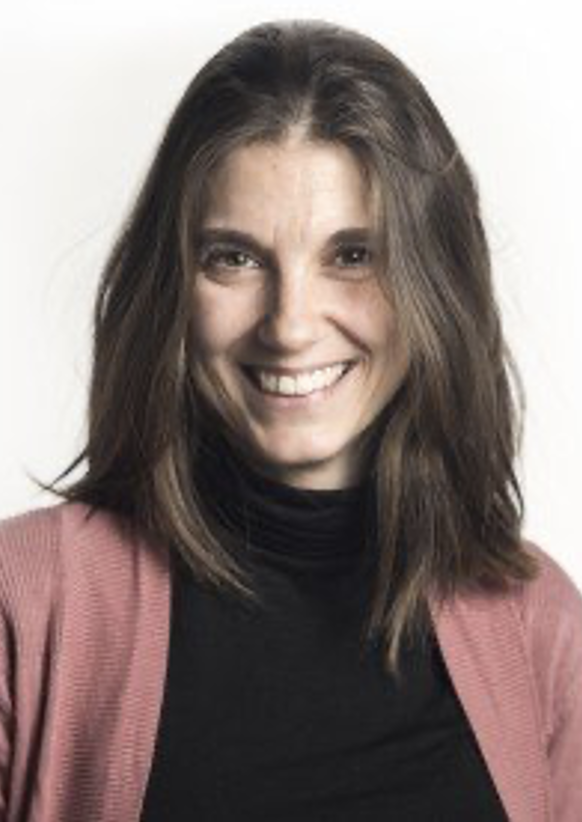
Listen to Dr. Rovira on Session 7: Beta & non-beta cells
Dr. Rovira is Principal Investigator at the Regenerative Medicine Program of IDIBELL and Ramon y Cajal Principal Investigator at the Department of Physiology Science II, University of Barcelona. Her research is centered on pancreatic regeneration, particularly the role of pancreatic progenitors and their niche. Dr. Rovira's lab investigates the potential of ductal cells as pancreatic progenitors to develop therapies aimed at restoring β-cell mass in type 1 diabetes, where autoimmune destruction of β cells impairs glucose regulation. Additionally, her team studies the microenvironment necessary for the maintenance of these progenitors, offering insights for innovative diabetes treatments.
Francesca Spagnoli
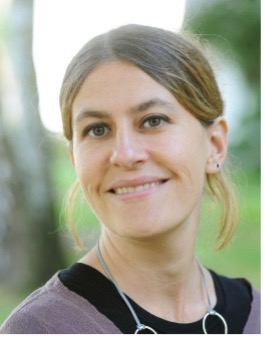
Listen to Dr. Spagnoli on Session 5: Modelling human islet development
Dr. Spagnoli is Professor of Regenerative Medicine at the Centre for Stem Cells and Regenerative Medicine, King’s College London. Her research focuses on the mechanisms regulating cell identity and plasticity in key metabolic organs, such as the pancreas and liver. Using genetic, genomic, and imaging techniques in mouse embryos and human stem cells, Dr. Spagnoli explores how liver and pancreas cells arise from common progenitors and the gene networks guiding these fate decisions. Her work aims to harness cellular plasticity for regenerative therapies, with the ultimate goal of improving the understanding and treatment of diabetes.
Andraž Stožer
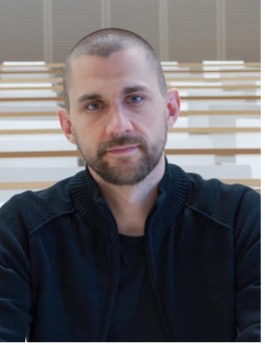
Listen to Dr. Stožer on Session 6: Signalling and crosstalk in the islet
Dr. Stožer is Head of the Institute of Physiology at the Faculty of Medicine, University of Maribor. His research focuses on advancing the understanding of beta cell function in both health and disease. By combining electrophysiological and optophysiological experiments with cutting-edge analytical methods from complex network theory, Dr. Stožer and his team study beta cell activity in control mice, genetically modified models, and mice with diet-induced insulin resistance. Their work aims to uncover novel insights into beta cell physiology, contributing to improved knowledge of insulin resistance and diabetes.